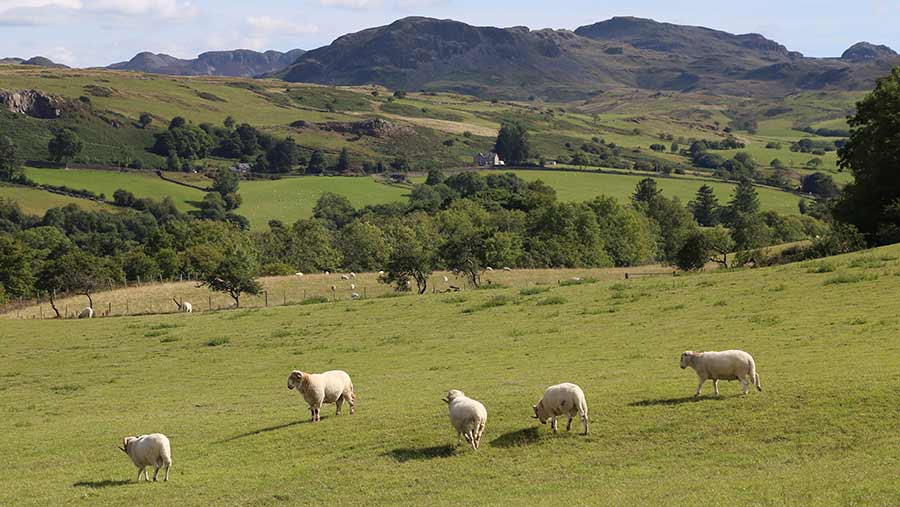Welsh ministers urged to axe next phase of NVZ proposals
 © Wendy/Adobe Stock
© Wendy/Adobe Stock Planned changes to nitrate vulnerable zone (NVZ) rules in Wales should be axed amid soaring input costs and increased price volatility, farming organisations have said.
NFU Cymru and the National Sheep Association (NSA) have urged the Welsh government to think again before imposing tougher new rules in January.
The changes are part of a three-year rollout of NVZ regulations that began in April 2021 (see “All-Wales NVZ plan” below).
See also: Report adds weight to call for rethink of all-Wales NVZ
The latest phase, to be added in January, includes requirements for all farmers to produce NVZ risk maps and nutrient management plans, and record nutrient applications and import and export of manures.
There will also be increased regulation around field muck heaps, slurry stores, crop limits and holding limits.
A report released in June by Wales’s Economy, Trade and Rural Affairs (Etra) committee suggested these changes would reduce farm production and incur huge and escalating compliance costs.
All-Wales NVZ plan
- Introduced with a three-year phase-in on 1 April 2021
- Expands NVZ from 2.4% of Welsh farmland to 100%
- Imposes nutrient-management plans and record-keeping requirements
- Controls when, where and how fertilisers may be spread with a 170kg/ha limit on organic manure spreading
- Imposes strict new standards for storing manure and silage
- Up-front compliance costs estimated at £360m
- Total costs estimated at £815m over 20 years
Rocketing costs
Upfront costs were already calculated by an earlier study to be £360m for the livestock and dairy sectors. And total costs were expected to be more than double that figure over a 20-year period at £815m.
Since those figures were calculated, input costs for fuel, labour and construction materials have rocketed.
This week, the NSA wrote to Welsh ministers to press the point that the upcoming changes could have a crippling effect on the agricultural industry in Wales.
NSA chief executive Phil Stocker wrote: “The increased restrictions to be put in place in January 2023 come at a time of serious volatility and financial uncertainty within the sector.
“Expecting businesses to invest in infrastructure is short-sighted and an irreverent approach from government.”
He added: “It is especially concerning that these measures and investment come at a time of a cost-of-living crisis when the consequences could drive the price of staple foods upwards. Estimates are already indicating that dairy production could shrink by 17%.”
Mr Stocker warned that the impact of the regulations would be far-reaching for the sheep sector. He suggested the outcome would be lower flock sizes, meaning a reduction in overall sheep numbers in Wales.
The effect of this would be a loss of critical mass which could have implications for the slaughtering, processing and exports sector as well as limiting opportunities for new entrants, Mr Stocker said.
Dairy production cuts
NFU Cymru deputy president and Glamorganshire dairy farmer Abi Reader added her organisation’s concern.
In July, a union member survey highlighted that 44% of farmers who planned to cut production blamed the NVZ rules for an anticipated lowering in output, Ms Reader said.
“Given the multiple challenges global food supply chains currently face, it has never been more important to ensure that here in Wales we are able to maintain and enhance our productive capacity.
“There is no doubt that the introduction of the 170kg/ha organic nitrogen limit from 1 January 2023 will reduce our food producing capabilities.”
The union and NSA pledged to continue working with ministers and policymakers to find an alternative solution that improved water quality where necessary while maintaining production.
A Welsh government spokesperson said: “We fully understand this is a very challenging time for farmers. We remain committed to working with the farming community to improve water quality and air quality, deploying the Water Resources Regulations 2021, taking an approach targeted at those activities known to cause pollution.
“It is important we work together to tackle the continuing pollution in our waters and support our farming industry.”
